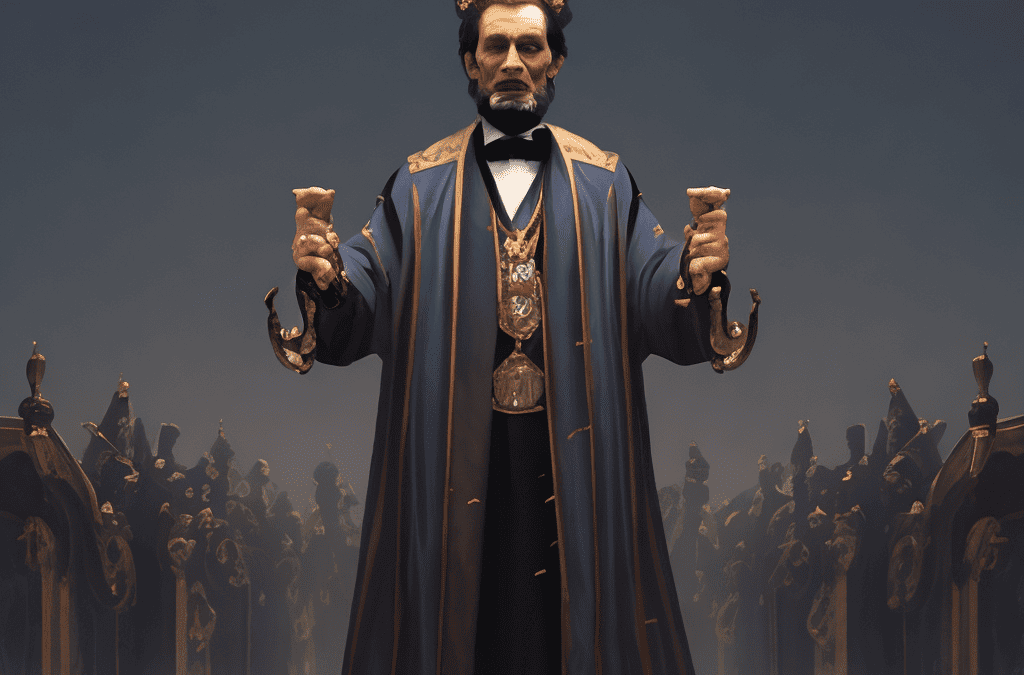Abraham Lincoln: infidel or faithful?
The two books that Abraham Lincoln read often and loved the most throughout his life were the King James Bible, published in 1611, and William Shakespeare’s works, first published as the First Folio in 1623, both the best of English literary works.
There were some—including his law partner in Springfield, Illinois, Billy Herndon— who were convinced that Lincoln displayed little religious faith whatsoever, that he was a skeptic, a thinker who scoffed at organized religion.
Hence, Lincoln’s appreciation of Shakespeare’s works. At times Lincoln was a thinker.
Yet, there were others who knew Lincoln, who chose to believe that he was a believer, that he was a Christian martyr, who accomplished an immense amount of good—the obliteration of American Slavery—through his political achievements.
Hence, his appreciation for the King James Bible. At times Lincoln was a believer.
“No sooner was Lincoln dead than some of his countrymen began to fight about his soul,” wrote Richard Current in his 1958 book The Lincoln Nobody Knows.
Where can anyone position the sixteenth president? As a free-thinking skeptic, or as a Christian believer? He was unique because he stood taller than two easy categories.
Current wrote, “Lincoln read the Bible and prayed, but still belonged to no church.”
Lincoln himself wrote, “That I am not a member of any Christian Church, is true; but I have never denied the truth of the Scriptures; and I have never spoken with intentional disrespect of religion in general, or of any denomination of Christians in particular.
“It is true that in early life I was inclined to believe in what I understand is called the ‘Doctrine of Necessity.’ The habit of arguing thus, however, I have, entirely left off from [for] more than five years.”
Scholars now see that Lincoln’s faith changed as he grew older. In the White House, trying to preserve the Union, living with his irascible wife Mary Todd, and working to win a war with a great slaughter on both sides, Lincoln sought direction from the Bible.
In the summer of 1864, Lincoln’s friend Joshua Speed happened to catch Lincoln reading his Bible. Lincoln told Speed, “Take all of this book upon reason that you can, and the balance on faith, and you will live and die a happier and better man.”
The death of Lincoln’s 12-year-old son Willie, drove Lincoln to find solace in the Bible.
The writer Joshua Zeitz just released his newest book, Lincoln’s God: How Faith Transformed a President and a Nation. A review of Zeitz’s book appeared in the New York Times on July 9, 2023.
Ted Widmer, the reviewer, wrote, “Lincoln’s philosophy was anything but certain; he hoped that he was right with God, and that was enough. His faith will never be simple to decipher, and that’s as it should be; it was, as the founders intended, a private matter.
“Zeitz weaves between the [two] dogmas, revealing a complex thinker who deftly merged religious language with political goals, and underwent a spiritual renewal during the Civil War.”
On March 4, 1865, six weeks before John Wilkes Booth assassinated Lincoln, the president delivered his Second Inaugural Address. “One scholar estimated that ‘266 of its 702 words were quoted verbatim from the King James Bible.’”
In it, he tried find a divine purpose as to why the war had lasted for four years.
He said, “The Almighty has his own purposes. Every drop of blood drawn with the lash shall be paid by another drawn with the sword.”
The abolitionist Frederick Douglass listened as Lincoln spoke that day, and later remarked that the Address sounded, “more like a sermon than a state paper.”
Yet, Lincoln also quoted from Shakespeare. From Hamlet, Lincoln would often recite, “There is a divinity that shapes our ends, Rough-hew them how we will.”
King James and William Shakespeare. Lincoln loved the two books’ language the best.

